Some ways to support a healthy child's immune system include eating plenty of fruits and vegetables, getting enough sleep, exercising, and washing hands regularly.
Children are born with a weak immune system that gradually improves until adulthood. Maintaining some healthy habits is a good way to help strengthen resistance and help children recover faster if they get sick. Below are 7 typical immune-boosting measures.
Get enough sleep
Lack of sleep can make children more susceptible to illness by reducing natural killer cells (NK cells), which are the immune system's "weapons" against bacteria and cancer cells.
Children at risk of sleep deprivation need to be put to bed early and get enough sleep to ensure they get plenty of rest. If your child cannot or does not have a habit of napping, try putting them to bed earlier.
Newborns may need up to 16 hours of sleep a day, toddlers need 11-14 hours, and preschoolers need 10-13 hours.
Do exercise
Research shows that exercise increases the number of natural killer cells (NK) in both adults and children. To get your children used to exercise, parents should be a role model and exercise with them. Healthy physical activities for families include cycling, walking, rollerblading, basketball and badminton...
Eat lots of fruits and vegetables
Brightly colored fruits and vegetables such as carrots, green beans, oranges, and strawberries contain carotenoids, which are phytonutrients that help boost immunity. Research also shows that phytonutrients help increase the production of white blood cells (which fight infection) and interferons (antibodies that coat cell surfaces and block viruses).
A diet rich in phytonutrients may also protect against chronic diseases such as cancer and heart disease in adulthood. Try to get your child to eat about five servings of fruits and vegetables a day.

Eating lots of fruits and vegetables is a strategy to help children increase micronutrients and develop their immune system. Photo: Freepik
Keep clean
Preventing your child from being exposed to germs and viruses will not boost their immunity, but it will help to reduce the stress on their immune system. This can be helpful if they have an underlying medical condition.
One of the simplest and most effective ways is to teach children to wash their hands regularly with soap and water. Parents should also pay attention to hygiene before and after each meal and after playing outside, handling pets, using the toilet or coming home from school.
When you go out, carry wet wipes or hand sanitizer. If your child gets sick, throw away the toothbrush afterward. Children don't get the same cold or flu virus twice, but the virus can be transferred from toothbrush to toothbrush if kept close together, increasing the risk of infection for other family members, says Barbara Rich, MD, a dentist at the Academy of General Dentistry.
Breastfeeding
Breast milk contains immune-boosting antibodies and white blood cells. These antibodies help protect your baby against ear infections, allergies, diarrhea, pneumonia, meningitis, urinary tract infections, and sudden infant death syndrome (SIDS).
Studies show that breast milk also boosts your baby's brain power and helps protect against insulin-dependent diabetes, Crohn's disease, colitis, and some cancers later in life. In particular, colostrum, the thin, yellow milk that flows from the breasts in the first few days after birth, is rich in disease-fighting antibodies.
The American Academy of Pediatrics (AAP) recommends exclusive breastfeeding for the first 6 months of life. If you don't have enough milk, try to breastfeed for at least the first 2-3 months to supplement your baby's immunity.
No exposure to cigarette smoke
The US Centers for Disease Control and Prevention (CDC) says cigarette smoke contains more than 7,000 toxic chemicals, many of which can irritate or kill cells in the body. Children are more vulnerable to the harmful effects of secondhand smoke than adults because they breathe at a faster rate and their natural detoxification systems are not yet fully developed.
Secondhand smoke also increases the risk of bronchitis, ear infections and asthma, and affects intelligence and neurological development in children. Parents should also note that e-cigarettes also have negative consequences for children's health.
Fully vaccinated
Getting your child vaccinated with all the recommended vaccines can help your child's immune system fight off dangerous germs like meningitis, polio, and chickenpox. Vaccinations also help the immune system recognize certain bacteria and viruses it might encounter. This helps the immune system be ready to protect the child's body against disease-causing agents.
If you are concerned about vaccinations, talk to your pediatrician. They can help you understand how vaccines work, which vaccines are important for your child, and other helpful information.
Bao Bao (According to Parents )
Source link



![[Photo] Solemn opening of the 8th Congress of the Central Public Security Party Committee, term 2025-2030](https://vphoto.vietnam.vn/thumb/1200x675/vietnam/resource/IMAGE/2025/10/4/f3b00fb779f44979809441a4dac5c7df)


![[Photo] General Secretary To Lam attends the 8th Congress of the Central Public Security Party Committee](https://vphoto.vietnam.vn/thumb/1200x675/vietnam/resource/IMAGE/2025/10/4/79fadf490f674dc483794f2d955f6045)







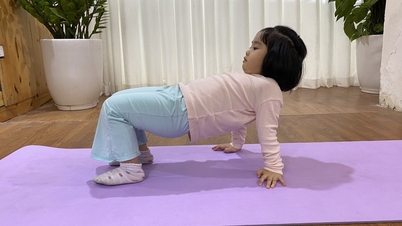
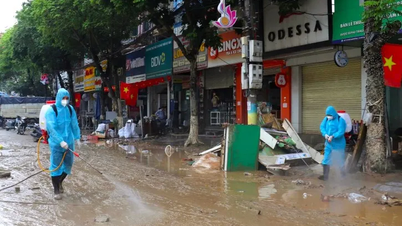






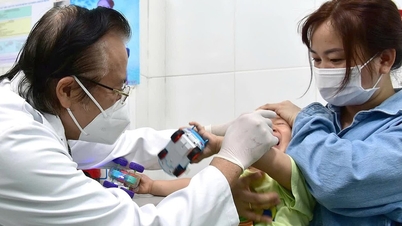










![[Photo] Students of Binh Minh Primary School enjoy the full moon festival, receiving the joys of childhood](https://vphoto.vietnam.vn/thumb/1200x675/vietnam/resource/IMAGE/2025/10/3/8cf8abef22fe4471be400a818912cb85)
![[Infographic] Notable numbers after 3 months of "reorganizing the country"](https://vphoto.vietnam.vn/thumb/1200x675/vietnam/resource/IMAGE/2025/10/4/ce8bb72c722348e09e942d04f0dd9729)



































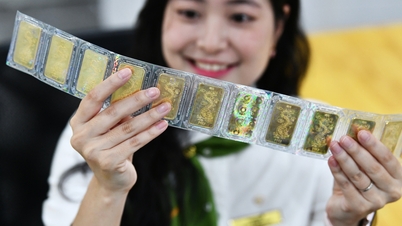




















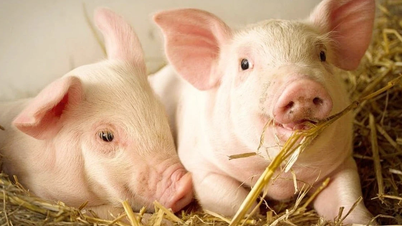






Comment (0)